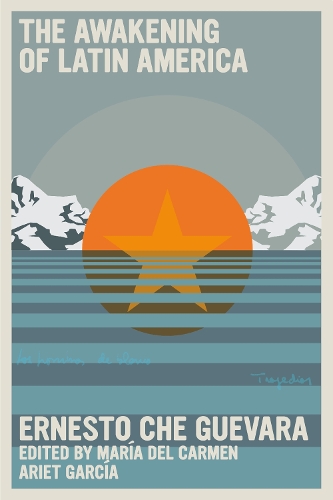
The Awakening Of Latin America
(Paperback)
Publishing Details
The Awakening Of Latin America
By (Author) Ernesto Che Guevara
Edited by Maria del Carmen Ariet Garcia
Translated by Che Guevara Studies Center
Seven Stories Press,U.S.
Seven Stories Press,U.S.
22nd August 2024
15th August 2024
United States
Classifications
General
Non Fiction
980.035
Physical Properties
Paperback
448
Width 152mm, Height 229mm
Description
This classic anthology on Latin America shows the Argentine-born revolutionary's cultural depth, rigorous intellect, and intense emotional engagement with a continent and its people. In a letter to his mother in 1954, a young Ernesto Guevara wrote, "The Americas will be the theater of my adventures in a way that is much more significant than I would have believed." In The Awakening of Latin America we have the story of those adventures, charting Che's evolution from an impressionable young medical student to the "heroic guerrilla," assassinated in cold blood in Bolivia. Spanning seventeen years, this anthology draws on from his family's personal archives and offers the best of Che's writing- examples of his journalism, essays, speeches, letters, and even poems. As Che documents his early travels through Latin America, his involvement in the Guatemalan and Cuban revolutions, and his rise to international prominence under Fidel Castro, we see how his fervent commitment to social justice shaped and was shaped by the continent he called home.
Author Bio
ERNESTO GUEVARA DE LA SERNA was born in Rosario, Argentina, on June 14, 1928. During his medical studies in Buenos Aires, he took a trip with his friend Alberto Granado on an old Norton motorcycle through all of Latin America, the basis for The Motorcycle Diaries. Living in Guatemala in 1954, he became involved in political activity there and was an eyewitness to the overthrow of the elected government in a CIA-organized military operation. Forced to leave Guatemala, Guevara went to Mexico City and linked up with exiled Cuban revolutionaries and met Fidel Castro in 1955. Guevara joined an expedition to Cuba that began in the Sierra Maestra mountains. He was originally the troop doctor and became Rebel Army commander in July 1957. Following the rebels' victory in 1959, Guevara became a key leader of the new revolutionary government. He began serving as head of the Department of Industry of the National Institute of Agrarian Reform; in November 1959 he became president of the National Bank; and in February 1961 he became minister of industry. He was also a central leader of the political organization that in 1965 became the Communist Party of Cuba.
